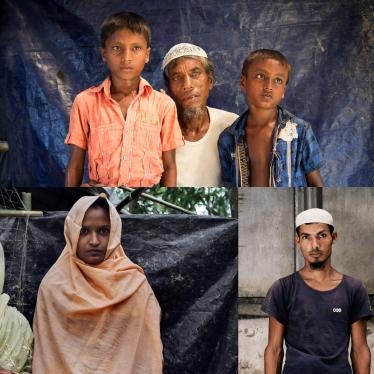Human Rights Watch expressed serious concerns about the Cambodian government's insistence that Khmer Rouge leader Ta Mok and possibly other top Khmer Rouge leaders can only be tried in Cambodian courts.
If trials in Cambodia do take place, they must meet international standards," said Kenneth Roth, executive director of Human Rights Watch. "Simply providing foreign advisers or pouring in funding support for the Cambodian judiciary is not the solution. Justice will not be served by a deeply flawed tribunal with the appearance of international legitimacy."
As an example, Roth pointed to the failure of the Cambodian government in recent years to credibly investigate hundreds of severe human rights abuses even with the proffered assistance of the United Nations, the FBI, and foreign legal advisers.
"Even with significant international participation, the Cambodian judiciary will remain highly vulnerable to political pressure and intimidation," said Roth. A case in point is the 1998 trial in absentia of former First Prime Minister Norodom Ranariddh on arms smuggling charges. In that trial, conducted in Phnom Penh Military Court, a pre-determined verdict was speedily handed down, followed by a pre-arranged amnesty for Ranariddh.
"Any trials of Khmer Rouge leaders must meet international standards which Cambodia, through ratifying major human rights treaties, has accepted as its own," said Roth. "An internationally-organized tribunal would expose the evidence to the whole world, ensure the defendants receive the highest level of due process, and ensure that prosecutions do not selectively target only those Khmer Rouge leaders who fail to cooperate with Prime Minister Hun Sen."
A key distinction between an international trial and a Cambodian one is that the former would concern itself with human rights crimes, such as policies and atrocities that could constitute crimes against humanity. The law which Hun Sen currently proposes to use against Ta Mok, the 1994 Law Outlawing the Khmer Rouge, is a specialized treason/conspiracy statute for those who in any way further the Khmer Rouge cause.
Roth also expressed the concern that international aid for trials under this domestic treason law might be eventually used to legitimate prosecution of Hun Sen's current political opponents for reasons that have nothing to do with the atrocities perpetrated by the Khmer Rouge between 1975-1978.
Hun Sen said in a recent interview that "Ta Mok will not go to jail alone" because he implicated unnamed others during his interrogation. "Hun Sen's statement is worrisome, because he is not necessarily referring to other Khmer Rouge leaders such as Khieu Samphan or Nuon Chea, but potentially to political rivals who have committed no crime," said Roth. "He can use this threat to stifle dissent."
"Hun Sen credits himself with being the man who brought peace to Cambodia," Roth said. "Now he should go one step further, and bring real justice to the victims of the Khmer Rouge's cruel regime, thereby helping to end the deeply entrenched culture of impunity in Cambodia."






